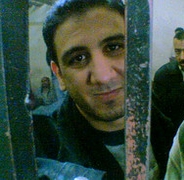Editor's note: This article is adapted from a paper that first appeared in Arab Media and Society, an online journal published by the American University in Cairo's Center for Electronic Journalism. Arab political blogging is changing and becoming more politically relevant. Arab blogs remain a very small, if rapidly growing, phenomenon -- there are perhaps a few thousand political blogs across the region. Still, Internet use and blogging are growing fast, and Internet access seems nearly universal among politically mobilized youth in certain Arab countries. Even if expectations that a few courageous blogs could shatter the wall of fear sustaining brittle Arab states have been overblown, blogs increasingly do matter. They allow ordinary Arabs to re-engage with politics, and escape the red lines that limit even the most independent of Arab media. National blogospheres create a space in which citizens are able to engage in sustained, focused political argument, and perhaps even hold national leaders to account. In addition, the dialogues and interactions on blogs may contribute to the rebuilding of transnational Arab identity by creating "warm" relationships among otherwise distant Arab youth -- or even build such relationships across the Arab-Western divide. Finally, blogs are chipping away at the encrusted structures of the Arab punditocracy, bringing in new voices that previously had no outlet, and challenging the norms and expectations governing Arab public political discourse. Even if Arab political blogs are unlikely to lead a revolution, they hold out the prospect of a new kind of Arab public sphere that could reshape the texture of politics in the decades to come.
Blogging the New Arab Public: Arab Blogs’ Political Influence Will Grow

